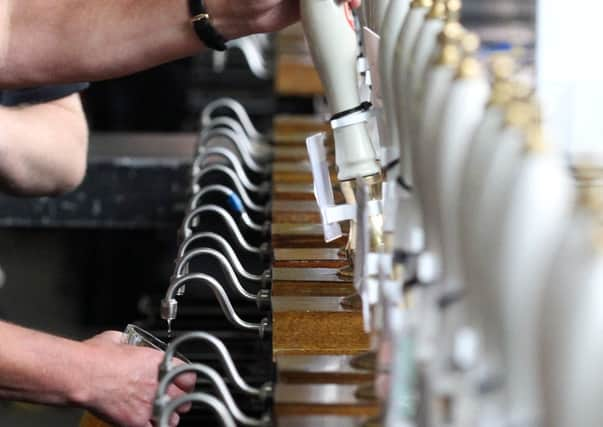Beer blog: An unwelcome intervention by the State


Now, I am not saying the Beer Orders were up there with the collapse of Communism. But in my opinion, it was a most unwelcome State intervention – and I would like to tell you why.
The Beer Orders basically forced the UK’s six largest brewers to sell off 11,000 boozers between them, a third of their combined estates. It also restricted the number of tied pubs that could be owned by large brewery groups in the UK, to 2,000. And it also allowed provision for a guest beer.
Advertisement
Hide AdAdvertisement
Hide AdAs a result it precipitated a restructuring of the UK beer industry and witnessed five of the six brewers exiting the ‘retail door’ – the exception being Scottish and Newcastle – who had the fewest pubs.
Beer Orders were meant to bring down the price of beer. Which, of course, they didn’t. It was heralded as providing an opportunity for small businesses to flourish, to create new financial opportunities and create more jobs.
I remember beer drinkers getting quite excited and optimistic about the changes. We all raised a pint of ale, to proclaim a new era, for our much-loved beer industry.
However, I’m afraid it didn’t all quite work out the way we expected.
Advertisement
Hide AdAdvertisement
Hide AdIt only created pub owning companies (Pubco’s), such as Enterprise Inns, Punch Taverns and Admiral Inns. Companies run by accountants and large shareholders. The mass pub disposal had driven down the price and money was cheap. It brought in mega capitalist power at the expense of the pub tenant, who then had to buy overpriced beer and other products – and pay high rents.
What did Pubco’s really know about local pubs, and the essential social services they provided for our local communities, up and down the country?
Not much in my opinion.
I think it’s fair to say, that they have knawed away, at the viability and traditions of our local boozer. And now we find our hostelries closing at an alarming rate – approximately 25 a week!
Alas, today we find these Pubco’s with massive stockpiles of debt. A result, it’s fair to say, partly due to the recession kicking in, and property prices crashing, from around 2008. Enterprise Inns’ net debts are about £2.5billion. So this company and companies like them, are now, not surprisingly, going about finding ways to reduce that debt.
Advertisement
Hide AdAdvertisement
Hide AdOne way is via the tenants. Let’s face it, the Pubco’s totally control the relationship with their licensees. They are simply able to use it to their advantage. Firstly, they set their rents, by fixing them at inflated prices. And, shock horror, then charge vastly inflated prices for their beer.
You can have a situation where the Pubco will pay a brewer approximately £60 for a firkin (72 pints). But then they charge their tenant £100 plus, for the same product. Many landlords constantly tell me of this practice.
This, of course, leads to a squeeze on profit margins, as tenants struggle to maintain a decent livelihood. And many, unfortunately, are forced to leave the trade.
But all is not lost. There is a glimmer of hope for our much beleaguered pub industry, as the Government is proposing a statutory code of practice.
Advertisement
Hide AdAdvertisement
Hide AdThe key objective is ensuring that tenants are treated fairly. And that tied tenants are no worse off than free-of-the-tie tenants.
This will hopefully enable pub leasees to call last orders on being “tied” to a Pubco, for their beer supplies. They would certainly be able to stock a better range of beers – and at a more competitive price. And perhaps, prevent their masters, taking too much of the profits.
Yes, we all raised a glass to the Beer Orders in 1989.
Unfortunately, in my opinion, it all went a little flat, in the years that followed. Hopefully, we will witness more refreshing and tasteful times in the future.
Follow @realaleupnorth on Twitter!